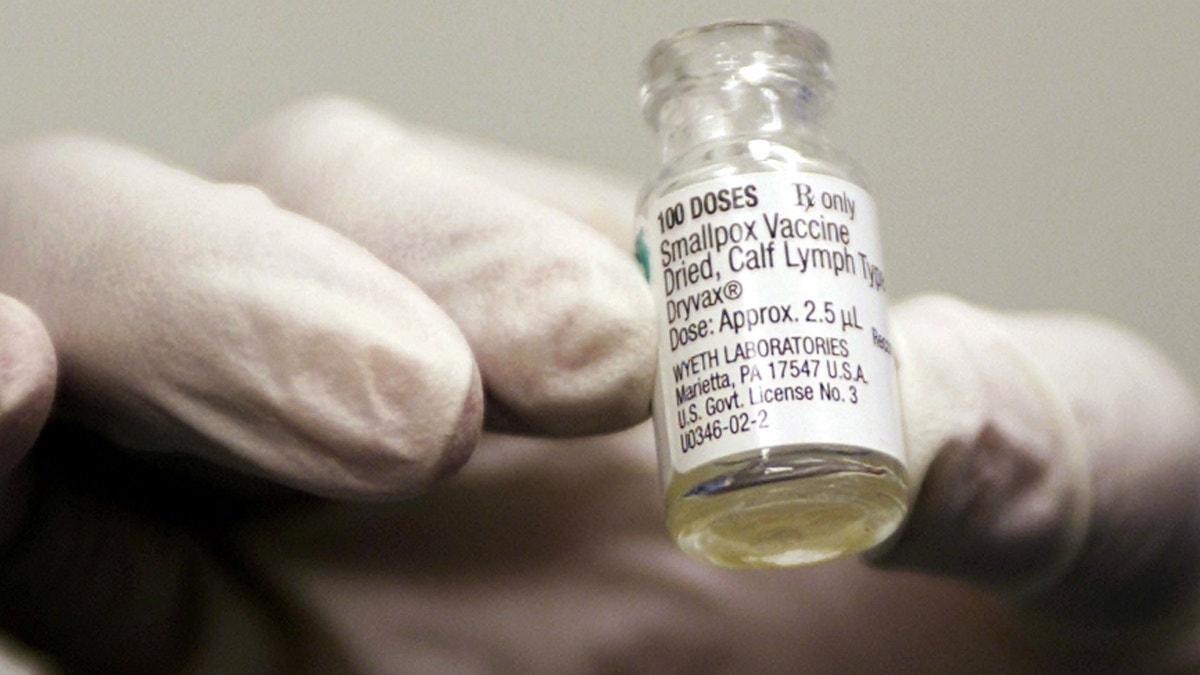
A vile of the smallpox vaccine that is being provided for the military is held up by a health worker at Walter Reed Army Medical Center in Washington. (Reuters)
More than 30 years ago, the deadly infectious disease known as smallpox was declared eradicated by the World Health Organization (WHO).
But in actuality, the virus isn’t gone just yet.
The last few strains of the variola virus, the pathogen that causes smallpox, are currently being held in high security labs in the United States and Russia. According to a report in the Sydney Morning Herald, experts at WHO now must make a crucial decision later this month: Destroy the virus completely – or keep these remaining vials in stock.
Although killing the variola vials would prevent the virus from being used as a terror-related weapon, three leading virologists argue that the stock should be kept for research purposes – in case the virus re-emerges in the future.
"There is more work to be done before the international community can be confident that it possesses sufficient protection against any future smallpox threats," the researchers, Dr. Inger Damon, Grant McFadden and Clarissa Damaso, wrote in an opinion piece published in the journal PLoS Pathogens.
Characterized by numerous raised bumps on an individual’s face and body, smallpox had once been one of the deadliest diseases in the world, killing approximately a third of the people it infected. The virus was also utilized in times of warfare in the 17th and 18th centuries – as well as by the British in the American Revolutionary War.
Ever since worldwide vaccination efforts led to smallpox’s eradication in 1980, WHO agreed that the last viral strains would be destroyed eventually, to stop the disease from being weaponized. But the organization never decided when that day would be, and for the past 30 years, WHO has repeatedly postponed taking this step.
Many health experts believe it’s time to finally be rid of the variola virus, including Dr. D.A. Henderson, who led the WHO's global smallpox eradication campaign.
"Let's destroy the virus and be done with it," Henderson, who now works for the nonprofit UPMC Center for Health Security , told the Associated Press. "We would be better off spending our money in better ways.”
But a recent WHO meeting raised a concerning point: Advances in bio-technology may make it possible to recreate the smallpox virus from scratch.
“The synthetic biology adds a new wrinkle to it," Jimmy Kolker, assistant secretary for global affairs for U.S. Health and Human Services, told The Associated Press. "We now aren't as sure that our countermeasures are going to be as effective as we'd thought even five years ago."
The WHO is set to debate on this topic by the end of the month. Meanwhile, the variola virus is being used for limited research and to create safer drugs and vaccines in case the killer virus occurs.
Click for more the Sydney Morning Herald.
The Associated Press contributed to this report.








































